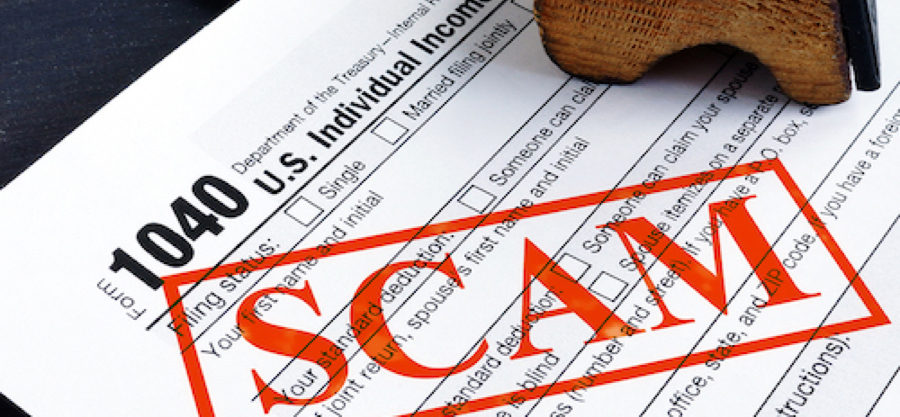IRS ISSUES ANNUAL LIST OF TAX SCAMS
The IRS recently issued its annual list of tax scams. The list highlights various scams that taxpayers may encounter, many of which occur during tax filing season. Here are some of the scams that are highlighted on the list.
PHISHING
Phishing scams usually involve unsolicited emails or fake websites that pose as legitimate IRS sites to convince you to provide personal or financial information. Once scam artists obtain this information, they use it to commit identity or financial theft. The IRS will never initiate contact with you by email to request personal or financial information. This includes any type of electronic communication, such as text messages and social media.
PHONE SCAMS
Phone scams typically involve a phone call from someone claiming you owe money to the IRS or that you’re entitled to a large refund. The calls may show up as coming from the IRS on your Caller ID, be accompanied by fake emails that appear to be from the IRS, or involve follow-up calls from individuals saying they are from law enforcement. Sometimes these callers may even threaten you with arrest, license revocation, or deportation.
IDENTITY THEFT
Tax-related identity theft occurs when someone uses your Social Security number to claim a fraudulent tax refund. You may not even realize you’ve been the victim of identity theft until you file your tax return and discover that a return has already been filed using your Social Security number. Or the IRS may send you a letter indicating it has identified a suspicious return using your Social Security number.
RETURN PREPARER FRAUD
Sometimes scam artists pose as legitimate tax preparers and try to take advantage of unsuspecting taxpayers by committing refund fraud or identity theft. It’s important to choose a tax preparer carefully since you are legally responsible for what’s on your return, even if it’s prepared by someone else.
INFLATED REFUND CLAIMS
Taxpayers should be wary of anyone promising an unreasonably large or inflated refund. These scam artists may ask you to sign a blank return and promise a big refund without looking at your tax records or charge fees based on a percentage of the refund.
FAKE CHARITIES
Groups sometimes pose as charitable organizations in order to solicit donations from unsuspecting donors. Be wary of charities with names that are similar to more familiar or nationally-known organizations. Before donating to a charity, make sure that it is legitimate. The IRS website has tools to assist you in checking out the status of a charitable organization.
IF THESE OR OTHER TOPICS ARE ON YOUR MIND, CONTACT US TODAY. FAIRMAN GROUP HAS A TEAM OF EXPERIENCED, CREDENTIALED PROFESSIONALS READY TO HELP.
IMPORTANT DISCLOSURES
This text is prepared for Fairman Group Family Office by Broadridge Investor Communications Solutions.
Broadridge Investor Communication Solutions, Inc. does not provide investment, tax, legal, or retirement advice or recommendations. The information presented here is not specific to any individual’s personal circumstances.
To the extent that this material concerns tax matters, it is not intended or written to be used, and cannot be used, by a taxpayer for the purpose of avoiding penalties that may be imposed by law. Each taxpayer should seek independent advice from a tax professional based on his or her individual circumstances.
These materials are provided for general information and educational purposes based upon publicly available information from sources believed to be reliable — we cannot assure the accuracy or completeness of these materials. The information in these materials may change at any time and without notice.

